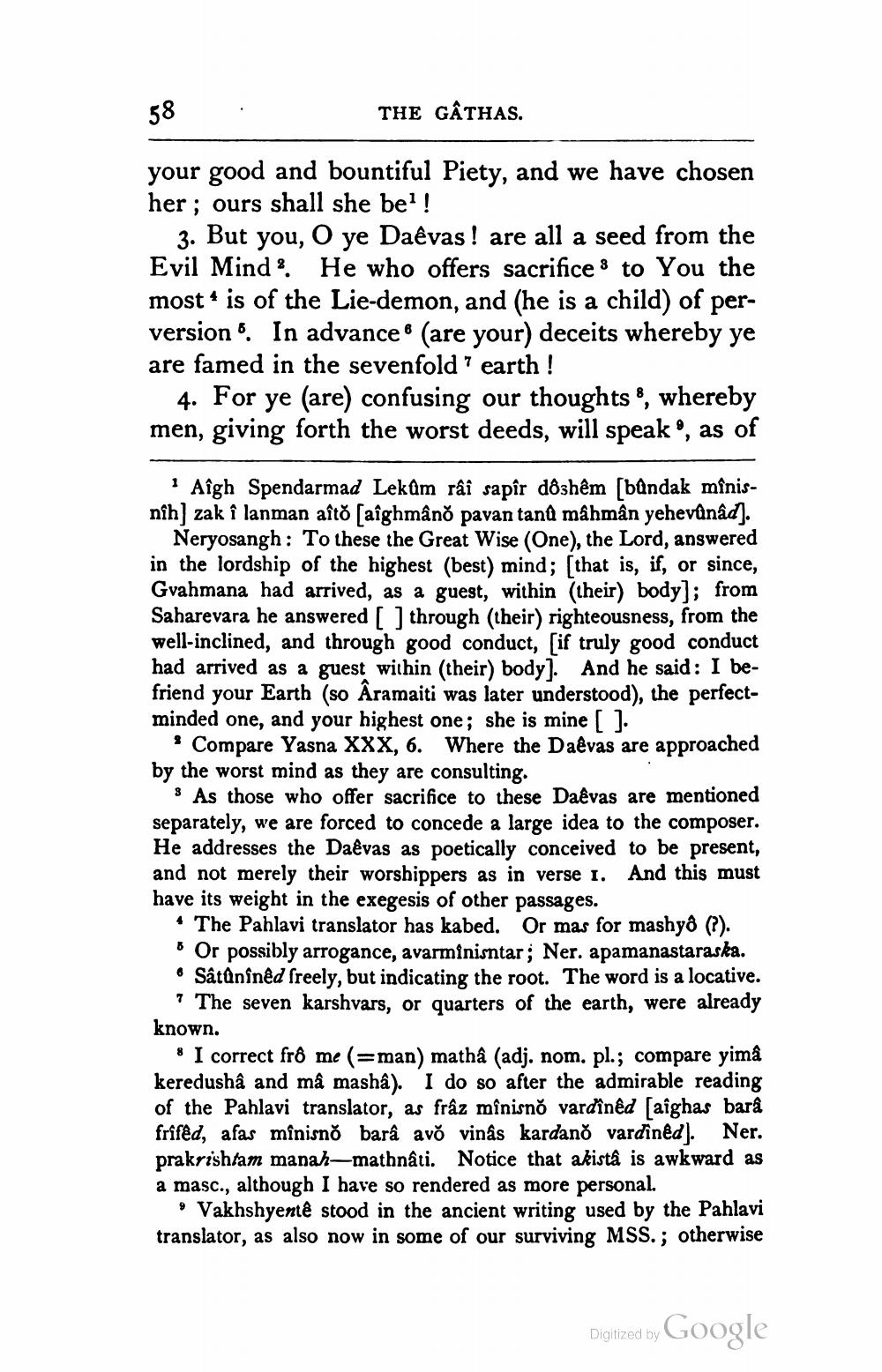________________
58
.
THE GÂTHAS.
your good and bountiful Piety, and we have chosen her; ours shall she be?!
3. But you, O ye Daêvas ! are all a seed from the Evil Mind? He who offers sacrifice 8 to You the most is of the Lie-demon, and (he is a child) of perversion. In advance ® (are your) deceits whereby ye are famed in the sevenfold' earth!
4. For ye (are) confusing our thoughts ®, whereby men, giving forth the worst deeds, will speak o, as of
Aigh Spendarmad Lekâm râi sapîr dôzhêm (bandak minisnih) zak í lanman aîtő [aîghmâno pavan tanů mâhmân yehevânâd).
Neryosangh: To these the Great Wise (One), the Lord, answered in the lordship of the highest (best) mind; (that is, if, or since, Gvahmana had arrived, as a guest, within (their) body); from Saharevara he answered [ ] through (their) righteousness, from the well-inclined, and through good conduct, [if truly good conduct had arrived as a guest within (their) body]. And he said: I befriend your Earth (so Âramaiti was later understood), the perfectminded one, and your highest one; she is mines
Compare Yasna XXX, 6. Where the Daêvas are approached by the worst mind as they are consulting.
• As those who offer sacrifice to these Daêvas are mentioned separately, we are forced to concede a large idea to the composer. He addresses the Daevas as poetically conceived to be present, and not merely their worshippers as in verse 1. And this must have its weight in the exegesis of other passages.
* The Pahlavi translator has kabed. Or mas for mashyo (?). • Or possibly arrogance, avarminisntar; Ner. apamanastaraska. • Sâtûnînêd freely, but indicating the root. The word is a locative.
* The seven karshvars, or quarters of the earth, were already known.
8 I correct frð me (=man) mathâ (adj. nom. pl.; compare yimâ keredushâ and må masha). I do so after the admirable reading of the Pahlavi translator, as frâz mînisno vardînêd [aîghas bara frifed, afas mînisnõ bara av vinâs kardano vardinéd. Ner. prakrishtam manah-mathnâti. Notice that akistå is awkward as a masc., although I have so rendered as more personal.
• Vakhshyentê stood in the ancient writing used by the Pahlavi translator, as also now in some of our surviving MSS.; otherwise
Digitized by
Digitized by Google




